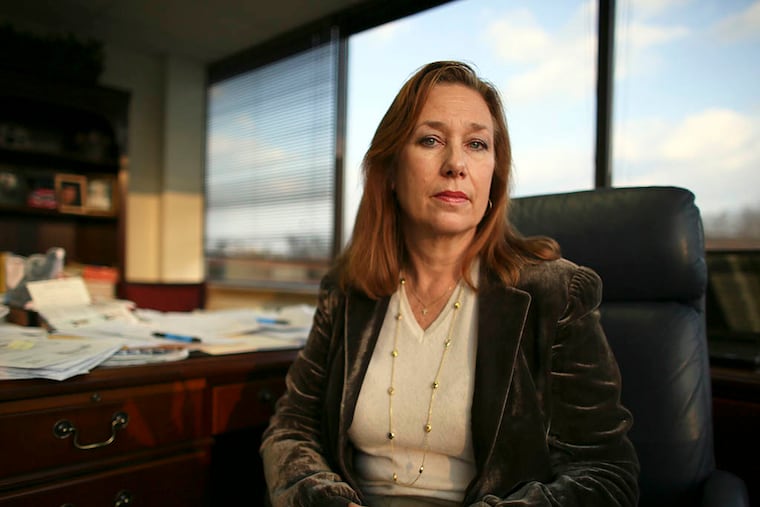Sanctioned lawyer's team says evidence supports her
The defense team for lawyer Nancy Raynor, hit with nearly $1 million in sanctions because one of her expert witnesses offered banned testimony in a medical malpractice trial, filed papers Monday arguing that the weight of accumulating evidence was ground for a reversal of the penalty.

The defense team for lawyer Nancy Raynor, hit with nearly $1 million in sanctions because one of her expert witnesses offered banned testimony in a medical malpractice trial, filed papers Monday arguing that the weight of accumulating evidence was ground for a reversal of the penalty.
In a filing with Philadelphia Common Pleas Court Judge Paul Panepinto, Raynor's defense team noted that three people have come forward to testify under oath on Raynor's behalf. They said she had asked the witness not to mention that a woman at the heart of a medical malpractice trial had a long history of smoking.
The woman, Rosalind Wilson, had gone to Roxborough Memorial Hospital in May 2007 complaining of shortness of breath and chest pains. Doctors ordered a chest X-ray but never informed her of a suspicious nodule in her lung. She died of lung cancer in July 2009, and her heirs sued the hospital and physicians involved in her care.
Raynor defended Jeffrey Geller, the emergency room physician who cared for Wilson. She said she advised an expert witness, Dr. John Kelly of Einstein Medical Center, that any mention of Wilson's smoking habit was precluded from the 2012 medical malpractice trial.
Kelly mentioned Wilson's smoking habit under questioning from Raynor, forcing a new trial.
The lawyers suing Raynor and the hospital had argued for such a restriction, saying any mention of Wilson's smoking would have diverted attention from the hospital's responsibility to offer the best possible care.
Raynor's attorney, Jeffrey McCarron, said Monday that Raynor had repeatedly urged Kelly not to bring up Wilson's smoking habit, and that the evidence supporting that has grown stronger over time.
Most recently, a trial technician who had worked on video displays for Raynor during the first malpractice trial testified that he overheard Raynor tell Kelly in a hallway just outside the courtroom that he was not to mention smoking.
Kelly himself has said he can't remember whether Raynor ever told him not to mention smoking. Two other witnesses, Geller and Ronald Stuart Moore, a claims examiner for Geller's liability insurer, said they heard Raynor speak about the restriction to Kelly.
"This [filing] gives the court a chance to evaluate all the testimony in context and to use it as an opportunity to reconsider its decision," McCarron said.
Panepinto imposed the sanctions on Raynor last Oct. 31, and on Feb. 3 issued an opinion accusing Raynor of deliberately eliciting the banned testimony as part of a trial strategy.
Raynor's team filed an emergency appeal with Superior Court, noting that technician Joseph Chapman had come forward, and a short time later the appellate panel ordered Panepinto to reconsider his penalty and permit Raynor access to her bank accounts, which had been frozen as a consequence of the sanctions order.
Raynor had argued that the sanctions, and attempts by opposing attorneys Matt D'Annunzio and Joseph L. Messa Jr. to collect $946,167 in penalties, would drive her small insurance-defense firm out of business, causing four attorneys and staff to lose their jobs.
D'Annuzio and Messa did not return calls for comment. They are expected to file their own arguments in the coming weeks.
One point central to Panepinto's sanctions ruling was his assertion that Raynor was under order not only to advise Kelly of the smoking restriction but to do so just before he testified.
But his written order of May 16, 2012, said only that such testimony was restricted, and did not include instructions to lawyers that they advise their experts just before they testified. His instructions from the bench, according to trial transcripts, also lacked precision on that point.
McCarron sought to hammer home that point in his filing Monday, asserting that Raynor was never under such an order.